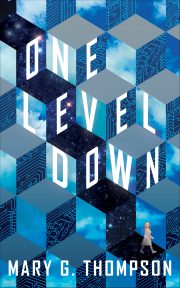Guest Post: Elusive Genius
by Jennifer Willis
 The other day, I finally got around to watching author Elizabeth Gilbert’s TED talk, “Your elusive creative genius.” Gilbert, of course, is the author of the best-selling Eat, Pray, Love and its follow-up, Committed: A Love Story, and I loved her comments in this talk about the grave possibility that her best work is behind her.
The other day, I finally got around to watching author Elizabeth Gilbert’s TED talk, “Your elusive creative genius.” Gilbert, of course, is the author of the best-selling Eat, Pray, Love and its follow-up, Committed: A Love Story, and I loved her comments in this talk about the grave possibility that her best work is behind her.
But the point of her talk—that genius may be something outside the individual, rather than an internal blessing or curse—is a message I find particularly important for creative minds today. Too often the burden of “genius” is placed on the fragile shoulders of individuals trying desperately to create, to live up to expectations, to outdo their own previous creations, and to essentially justify daring to call themselves artists (or writers, or musicians, etc.) to begin with.
I am in love with the description of poet Ruth Stone’s creative process—that each poem came rumbling down the mountain at her like a storm of words, and it was simply the poet’s job to find a pen and paper in time in order to capture it. But that’s a poet for you.
More practically, I was struck by Gilbert’s own experience of trying on this idea of creative genius as existing outside the artist or creative worker. As she sat writing Eat, Pray, Love, Gilbert admits that the words weren’t always coming along so well and she was tempted to simply give up on the project. Instead, she lifted her head from her manuscript, looked to a far corner of the room, and effectively said, “All right. I’m showing up and doing my part on this project. If you—creative genius—want to show up, too, that’s fine by me.”
I like this. A lot.
I’ve been troubling with the plot outline for a book revision—for volume 3 of the Valhalla series, to be exact. My plots are never simple things. There’s always a good bit of research involved, but sometime that spark—the one that brings all the facts and figures (and myths and legends) together with the context of the characters, arcs, and world I’ve created—takes its own sweet time coming around to call.
On the day I’d set as a deadline for finalizing this plot outline, I still had significant holes and timeline issues. Rather than beating my head against a wall, I figured a time-out for meditation was a good idea. As I launched the TuneIn app and set it to Radio Ultimae for ambient music, I made a quick appeal: Okay, story faeries. I’ve been working hard on this but don’t quite have it. I want this story to work. I think it could be good. If you’d like to offer some help, I’d appreciate it.
And wouldn’t you know it? Within the first few minutes of my meditation, the loose pieces started falling into place and weaving into the larger tapestries. I could see what material needed to be cut, what should be included instead as exposition, what new material would fill in the gaps . . . I won’t say that the entire outline was instantaneously done, but I was an awful lot closer than I had been.
So when you find yourself blocked, try shaking off the burdensome idea that it’s all up to you. Have a listen to Gilbert’s TED Talk, and maybe appeal to your own elusive, creative genius that might be lurking in the corner just waiting to be called.
•••
Jennifer Willis is an author and journalist in Portland, Oregon. Her articles and essays have appeared in The Oregonian, Salon.com, The Christian Science Monitor, The Writer, and other electronic and print publications at home and across the globe. Her novels—Rhythm (2001), Valhalla (2011), and Iduna’s Apples (2012)—are currently available both as ebooks and in print. Find her online at jennifer-willis.com, where this post first appeared, and follow her on Twitter @jenwillis and via her Facebook author page.”


